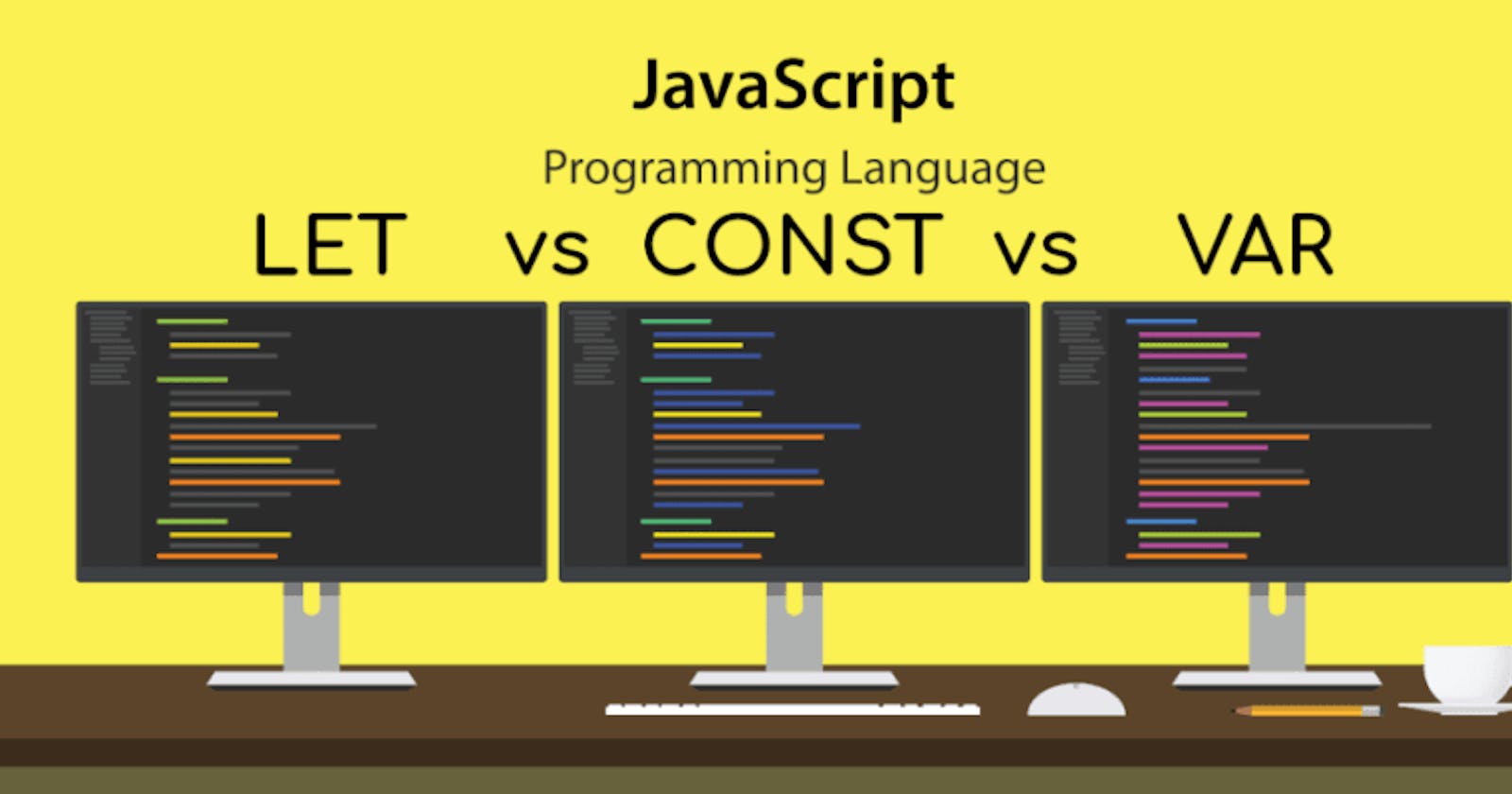JavaScript Let vs Var vs Const: Understanding the Differences
Introduction
JavaScript is a versatile language known for its flexibility in variable declaration. However, with flexibility comes responsibility. Understanding the nuances between let, var, and const is crucial for writing clean, maintainable code. In this article, we'll delve into the differences between these variable declarations, exploring their scopes, redeclarations, and reassignments.
Using Let, Var & Const
Let
let was introduced in ECMAScript 6 (ES6) and provides block-scoping, allowing variables to be scoped to the nearest enclosing block.
function letExample() {
let x = 10;
if (true) {
let x = 20; // Different scope
console.log(x); // Output: 20
}
console.log(x); // Output: 10
}
Var
var has function-level scope, meaning variables declared with var are accessible throughout the function in which they are defined.
function varExample() {
var x = 10;
if (true) {
var x = 20; // Same scope
console.log(x); // Output: 20
}
console.log(x); // Output: 20
}
Const
const also provides block-scoping and is used to declare variables whose values are intended to remain constant throughout their lifecycle.
function constExample() {
const x = 10;
// x = 20; // Error: Assignment to constant variable
console.log(x); // Output: 10
}
Difference between Let vs Var vs Const
Variable Scope
let: Block-scoped, scoped to the nearest enclosing block.var: Function-scoped, scoped to the nearest function.const: Block-scoped, scoped to the nearest enclosing block.
We can redeclare a var variable
Variables declared with var can be redeclared within the same scope without throwing an error.
var x = 10;
var x = 20; // No error
console.log(x); // Output: 20
Var can be accessed before they are declared
Variables declared with var can be accessed before they are declared, a behavior known as "hoisting."
console.log(y); // Output: undefined
var y = 10;
Const cannot be reassigned
Variables declared with const cannot be reassigned once they have been initialized.
const z = 10;
// z = 20; // Error: Assignment to constant variable
console.log(z); // Output: 10
Global Variables
Global Scope
Variables declared outside of any function or block have global scope.
var globalVar = 10;
function globalScopeExample() {
console.log(globalVar); // Output: 10
}
Let, Var & Const: Which One to Choose?
Choosing the right variable declaration depends on the specific requirements of your code:
let: Useletwhen you need block-scoping or when you want to reassign the variable.var: Usevarwhen you need function-scoping or when you want the variable to be accessible throughout the function.const: Useconstwhen you want to declare a variable whose value remains constant throughout its lifecycle.
Consider the scope and mutability requirements of your variables before making a decision.
Conclusion
In JavaScript, the choice between let, var, and const can significantly impact the behavior and maintainability of your code. Understanding their differences in scope, redeclarations, and reassignments is essential for writing efficient and bug-free code. By following the guidelines outlined in this article, you can make informed decisions when declaring variables in your JavaScript projects.
FAQs
1. Can I use const for objects and arrays?
Yes, you can use const to declare variables that reference objects or arrays. However, keep in mind that while the variable itself cannot be reassigned, the properties or elements of the object or array can be modified.
const obj = { name: 'John' };
obj.name = 'Jane'; // Valid
2. What happens if I declare a variable with let or const without initializing it?
Variables declared with let or const are hoisted to the top of their block but are not initialized until the actual declaration is encountered during runtime. Accessing such variables before initialization will result in a ReferenceError.
console.log(a); // Output: ReferenceError: Cannot access 'a' before initialization
let a = 10;
3. When should I use var?
var should generally be avoided in modern JavaScript code due to its function-level scope and hoisting behavior, which can lead to unexpected results and make code harder to maintain. However, in certain legacy or specific scenarios where function-level scoping is desired, var might still be appropriate.
function varLegacyExample() {
if (true) {
var x = 10;
}
console.log(x); // Output: 10
}
By understanding the nuances of let, var, and const, you can write more robust and maintainable JavaScript code. Remember to consider scope, mutability, and hoisting when choosing the appropriate variable declaration for your specific use case.
